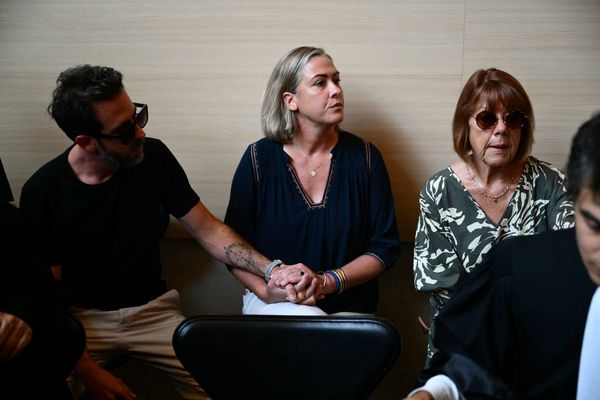Elon Musk's prominence continues to grow.
The chief executive of Tesla (TSLA) has more than 106.2 million followers on Twitter, one of the platforms where trendsetters and opinion makers meet, news is often broken, and agendas are set.
Just four people have more: Former U.S. President Barack Obama with 133 million followers, and three pop stars: Justin Bieber (114 million), Katy Perry (108.9 million) and Rihanna (106.6 million).
One way Musk has built his following is, as TheStreet has extensively reported, by being unafraid to weigh in on world affairs, especially as they connect with the companies he runs: Tesla, the clean-energy-vehicle leader, Neuralink, the medical-tech developer, SpaceX, the rocket tech and service provider, and Boring Co., the construction-services company.
And through telecom-service provider Starlink, the world's richest man (fortune estimated at $268 billion as of Sept. 19 by the Bloomberg Billionaires Index) has become a representative of freedom for millions of people living in dictatorships.
Independent Access to the World
For those deprived of the latest technological innovations, the visionary CEO is seen as someone who can help them catch up with the rest of the world.
Starlink is the satellite-internet-connection service of Musk’s SpaceX. This service guarantees secure and independent access to the internet. It is difficult to hack. Service cuts are rare.
It provides access to the internet for residents of areas that are poorly served by the fixed and mobile networks of telecom operators. Thousands of small satellites circulating in low orbit -- mainly 342 miles (550km) above Earth -- enable the service.
Musk and his company have supplied Starlink terminals to volcano-hit Tonga, in the southern Pacific Ocean, to provide internet access to isolated and remote villages.
Starlink antennas gained popularity after Musk sent them to Ukraine after Russia invaded the country on Feb. 24. They give Ukrainians independent access to the internet and enable the country to keep in touch with the outside world. The system is used particularly in remote areas as well as places that Russia has bombed..
Starlink's effectiveness foiled Russia's war-communications plans, causing fury among Russia's authorities to the point they threatened to retaliate. Musk countered by noting that Starlink is a tool for peace.
Starlink in Iran and Cuba?
It is in this context that Musk has just promised the Iranians and Cubans that SpaceX will request an exemption from the American authorities so he'll be able to offer Starlink in these two countries, which are under sanctions.
It all started with a question from a user on Twitter after Musk announced that Starlink was now available on all five continents, including Antarctica.
"I'm sure you won't answer it Mr Musk, but is it technically possible to provide Starlink to Iranian people? It could be a game changer for the future," the user asked.
"Starlink will ask for an exemption to Iranian sanctions in this regard," the tech tycoon responded.
"Could you do the same for other countries under a dictatorship like Cuba for example? You will save so many lives 🙏🏻," another user asked.
"Ok," the billionaire responded.
Musk did not say when SpaceX intends to make these requests for exemptions. Nor did he say whether the company will discuss them with the Iranian and Cuban authorities, who may not favor a technological tool that they won't be able to control.
But his promise already raises a lot of hopes.
"Starlink is a hope for the fight for freedom in Latin America, we trust you, thank you so much for your help ♥️🙏🏻," commented the human rights activist user who asked about Cuba.
Musk's promise comes amid protests in Iran, notably in the capital, Tehran, to denounce the death of Mahsa Amini, a 22-year-old Iranian woman, three days after her arrest by the morality police.
On Sept. 13 Amini was arrested in Tehran for "wearing inappropriate clothing." She was arrested by the unit responsible for enforcing the Islamic Republic's strict dress code for women. The young woman fell into a coma after her arrest and died on Sept. 16 in the hospital, according to state television and her family.
Activists called her death suspicious, but Tehran police said there was "no physical contact" between officers and the victim.
"The incident was unfortunate for us and we wish to never witness such incidents," Greater Tehran Police Commander Hossein Rahimi told the media on Sept. 19.
Iranian President Ebrahim Raisi has called for an investigation.







